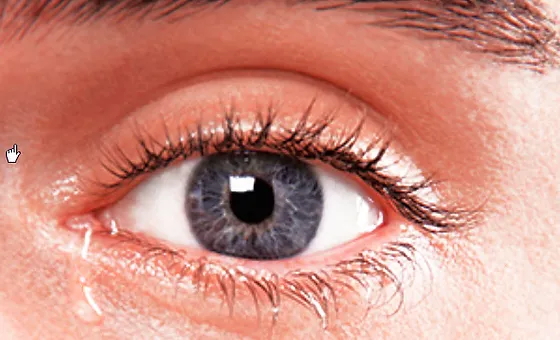Watering Eye
Welcome to Bright Vision Care Hospital, where we are committed to providing exceptional eye care to enhance your visual comfort and overall eye health. In this informative guide, we will explore the common condition known as a "Watering Eye" or epiphora. Our mission is to provide you with comprehensive information about this condition, including its symptoms, effective do's and don'ts for management, recommended eye exercises for relief, and expert care to address the underlying causes of watery eyes.
A watering eye can be bothersome, but understanding its causes and taking appropriate steps can help alleviate discomfort and maintain the clarity of your vision.

Symptoms
The most noticeable symptom is the constant production of tears, leading to watery eyes.
Blurry VisionExcessive tearing can temporarily blur your vision, making it difficult to see clearly.
Eye DiscomfortWatery eyes may be accompanied by irritation, a gritty feeling, or a sensation of something in the eye.
RednessConstant tearing can cause redness in the eye, making it appear bloodshot.
Crusting of EyelidsIn some cases, the excessive tearing can lead to crusting and stickiness of the eyelids, particularly upon waking.

Do's & Dont's
Do's
Consult an Eye SpecialistIf you experience persistent watery eyes, consult an eye specialist to identify and address the underlying cause.
Maintain Good Eye HygieneKeep your eyelids and eyelashes clean to prevent blockages in the tear drainage system.
Use Artificial TearsOver-the-counter artificial tear drops can help lubricate the eyes and provide relief from dryness, which can sometimes trigger watery eyes.
Manage AllergiesIf allergies contribute to your watery eyes, work with your healthcare provider to manage them effectively.
Protect Your EyesWear sunglasses to shield your eyes from wind, dust, and other environmental factors that can exacerbate watery eyes.
Dont's
Don't Rub Your EyesAvoid rubbing your eyes, as this can worsen irritation and lead to further tearing.
Avoid IrritantsSteer clear of irritants like smoke or chemicals that can exacerbate watery eyes.
Don't Skip Eye ExamsRegular eye check-ups can help identify and address the underlying causes of watery eyes.
Avoid Overuse of Eye DropsWhile artificial tears can provide relief, don't overuse them without consulting an eye specialist.
Don't Ignore ChangesIf your symptoms worsen or change, do not ignore them. Contact your eye specialist for a re-evaluation.
Exercises
While there are no specific exercises for watery eyes, maintaining overall eye health is essential. Consider these practices:
Ensure regular blinking to help distribute tears and keep the eye moist and comfortable.
Eye HygieneMaintain good eye hygiene by keeping your eyelids clean and free from debris.
Eye RestTake breaks during extended periods of screen time or intense visual tasks to reduce eye strain.
Eye ProtectionUse protective eyewear in challenging environmental conditions to safeguard your eyes from potential harm.
Follow Eye Specialist's RecommendationsAdhere to any specific eye care routines recommended by your eye specialist to address uveitis and overall eye health.

Summary
A watering eye can be a bothersome condition, but it is usually treatable with the right care and attention. At Bright Vision Care Hospital, we are dedicated to providing expert care and guidance to address the causes of watery eyes and enhance your visual comfort.